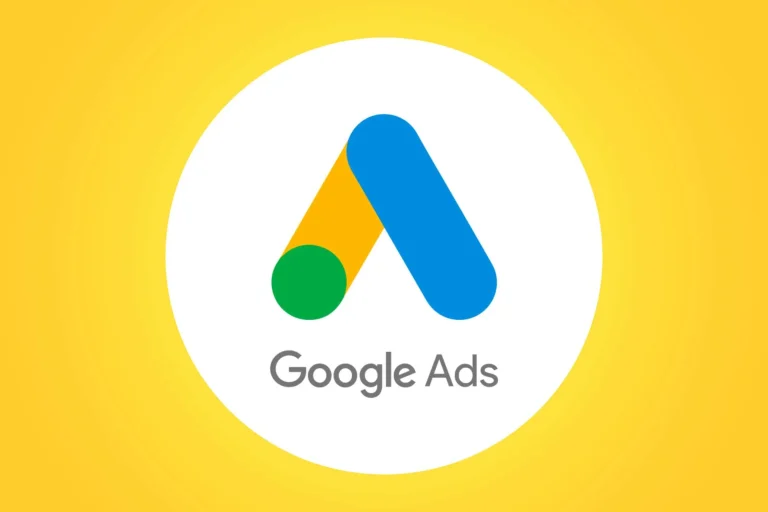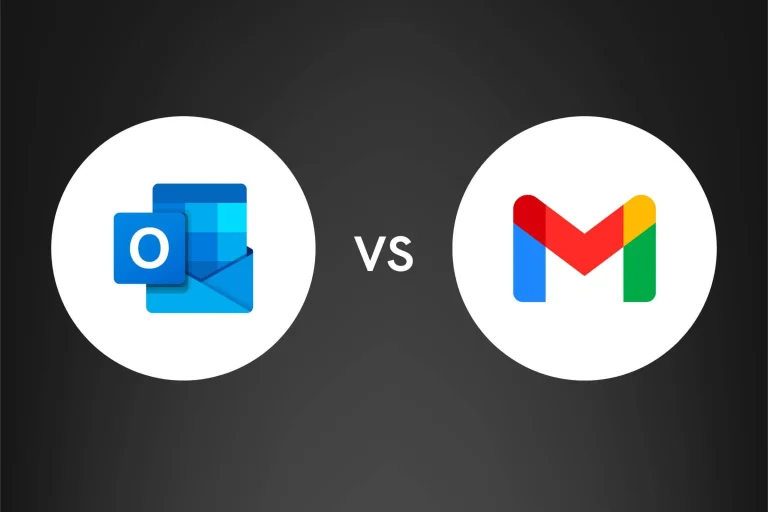Are you looking to make your PPC campaigns successful? Do you need help with the best practices and tips that can help take your campaigns to the next level? Look no further – this comprehensive guide will provide you with all the resources and tactics you need to ensure your PPC campaigns succeed!
What is PPC?
PPC, or pay-per-click, is an online advertising model in which advertisers display ads on their website and pay the publisher (usually a search engine or website owner) when a user clicks on the ad.
PPC is a popular advertising method because it allows advertisers to target specific audiences and track results. Additionally, PPC ads can be customized to appear when certain keywords are searched for, making them highly visible to potential customers.
However, running a successful PPC campaign requires careful planning and ongoing management. In this guide, we’ll walk you through everything you need to know about how to make your PPC campaigns a success.
Common Types of PPC Advertising
PPC advertising is an effective way to drive traffic to your website and generate leads. However, creating a successful campaign can be challenging if you need to familiarize yourself with the different types of PPC advertising.
The most common types of PPC advertising are Google Ads and Facebook Ads. Google Ads is the largest PPC platform, with over 2 million advertisers worldwide, and is the second largest PPC platform, with over 1.5 million advertisers worldwide.
Both Google Ads and Facebook Ads offer various targeting options, so you can precisely reach your target audience. Google Ads also offers a variety of ad formats, including text ads, image ads, and video ads. In addition, Facebook Ads offers a variety of ad formats as well, including single-image ads, carousel ads, and video ads.
When creating a PPC campaign, it’s important to consider your goals and objectives. What do you want to achieve with your campaign? What are your targets? Once you know your goals and objectives, you can choose the right type of PPC advertising for your campaign.
Benefits of PPC Campaigns
PPC campaigns offer many benefits that can help you achieve your marketing and business goals. Here are some of the main benefits of running a PPC campaign:
1. Increased visibility for your brand:
A PPC campaign can help increase your brand’s visibility online, making it more likely that potential customers will see your product or service when they are searching for something related.
2. More targeted traffic:
With PPC, you can target your ads to people specifically searching for the kinds of products or services you offer. You are more likely to generate leads and sales from your PPC campaign than from other marketing activities.
3. Greater control over your budget:
With PPC, you can set a budget for your campaign and know exactly how much you will spend on each click. This allows you to control your overall marketing spending better and ensure a good return on investment from your PPC campaign.
4. Faster results:
A well-run PPC campaign can deliver results very quickly, sometimes within just a few hours or days, making it an ideal marketing tactic for businesses that need to generate quick results, such as when launching a new product or service.
5. Measurable results:
PPC campaigns are highly measurable, allowing you to track the performance of your ads in real time and make adjustments as needed to improve results. This makes it easy to test different strategies and optimize your campaign for maximum efficiency.
Setting Up Your First PPC Campaign
Now that you know the basics of how PPC works, it’s time to set up your first campaign! Before you begin, there are a few things you need to take into account to make your campaign a success.
First, determine your goals. What do you want to achieve with your PPC campaign? Are you looking to generate leads, increase brand awareness, or drive sales? Once you know your goal, you can start creating your ad campaigns and target your audience accordingly.
Next, research your keywords. This is one of the most important aspects of any PPC campaign, as it will determine which searches will trigger your ad. Use keyword research tools like Google AdWords Keyword Planner and semrush to find relevant keywords for your business.
Finally, set up your budget. How much are you willing to spend on your PPC campaign? Remember that you’ll need to bid on keywords for your ads to appear in search results, so be sure to factor this into your budget.
Once you’ve considered all of these factors, you’re ready to start setting up your PPC campaign! Follow the steps below to get started:
- Log into your Google Ads account and click “Create Campaign”.
- Select “Search Network Only” from the options provided.
- Give your campaign a name and click “Continue”.
- Select your target audience, including language and location.
- Choose your keywords and set your bid amount.
- Create a compelling ad that includes a call to action.
- Set up your budget and schedule for the campaign.
- Click “Save and Continue” to launch your campaign!
Now you’re ready to start tracking the progress of your PPC campaign. You can use Google Analytics or a third-party tracking tool like AdEspresso to monitor clicks, impressions, conversions, and more. This will help you determine which ads are performing well and make adjustments where necessary. Keep in mind that PPC campaigns require regular maintenance, so be sure to stay on top of it!
Developing Targeted Keywords and Ad Copy
Before creating targeted ad campaigns, you need to research and develop a list of keywords relevant to your business. Once you have your list of keywords, you can begin creating ad copy that is specifically tailored to each keyword.
Your ad copy should be clear and concise and address your target audience’s needs. It should also include a call to action, such as “click here to learn more.” By creating targeted ad campaigns, you will be able to reach your target audience more effectively and increase your chances of conversion.
Tracking Your PPC Performance
One of the most important aspects of effective pay-per-click (PPC) campaigns is tracking your performance. Without tracking, you won’t be able to see what’s working and what isn’t, and you’ll be wasting money on ineffective campaigns.
Fortunately, there are some ways to track your PPC performance. First, Google Analytics is a free tool that can be used to track your PPC campaigns. Then, create a campaign for each ad group and link them to your Analytics account. Once you’ve done this, you’ll be able to see detailed information about how each campaign is performing.
Another way to track your PPC performance is through A/B testing. This involves creating two different versions of an ad and then running them both at the same time. Whichever version performs better is the one that you should keep using. A/B testing can be a great way to fine-tune your campaigns and ensure they’re as effective as possible.
Finally, remember to ask your customers how they found out about you. If you’re not doing any tracking, this is the only way that you’ll be able to tell which of your marketing efforts are working and which aren’t. Make sure to include this question in any surveys or customer feedback forms that you use.
By tracking your PPC performance, you’ll be able to ensure that your campaigns are as effective as possible. This will help you maximize your investment return and ensure you get the most out of your budget.
Leveraging Retargeting with PPC Ads
Retargeting is an effective way to reach potential customers who have visited your website but haven’t converted. By targeting these users with relevant ads, you can increase the chances of getting them to return and convert.
There are a few things to keep in mind when using retargeting with PPC ads:
- Make sure your ads are relevant to the user. The more relevant the ad, the more likely the user is to engage with it.
- Please don’t overdo it. If you show too many ads to a user, they will become annoyed and may start to ignore your ads altogether.
- Test different ad copy and images to see what performs best. Not all ads will perform equally well, so it’s important to test different versions to see what works best for your audience.
- Set up multiple campaigns to target different segments of users. You can create separate campaigns for first-time visitors, returning visitors, and those who have already converted. This way, you can tailor your ads to each segment and maximize the effectiveness of your retargeting efforts.
By leveraging retargeting with PPC ads, you can increase the chances of getting potential customers to convert and become paying customers. With the right strategy and testing, you can optimize your PPC campaigns and get more out of your marketing budget.
Strategies for Improving Your ROI
You can use many strategies to improve your ROI from PPC campaigns. Here are some of the most effective:
- Conduct keyword research to identify high-value keywords relevant to your business and have a good search volume. Then, target these keywords in your campaigns.
- Create ad groups around themes or products, and target each ad group with specific keywords. This will help ensure that your ads are more relevant to the searcher’s query and, thus, more likely to be clicked on.
- Write compelling ad copy that is relevant to the searcher’s query and entices them to click through to your website.
- Use negative keywords to exclude searches that are irrelevant to your business or product and thus prevent your ads from being shown for these queries.
- Set up conversion tracking so you can measure the effectiveness of your campaigns in terms of leads or sales generated. This will help you determine which campaigns are performing well and which need improvement.
- Regularly review your campaigns and make necessary changes to improve results. This could involve changing bidding strategies, ad copy, targeting options, etc.
Optimizing Your Cost Per Click (CPC)
To optimize your cost per click, you need to understand your goals and how much you are willing to spend to achieve them. Once you know this, you can begin to bid on keywords that will help you reach your target audience. You can also use negative keywords to exclude certain terms unrelated to your campaign. Additionally, placements and device targeting can help you control where your ads appear and who sees them. Finally, testing different ad copy and landing pages can also improve your CPC.
Alternatives to PPC Advertising
Many alternatives to traditional PPC advertising can be just as effective, if not more so. Here are a few to consider:
Content marketing
Producing high-quality, informative content that your target audience will find useful is a great way to attract attention and drive traffic to your website without having to pay for ads.
Organic Social media
Utilizing social media platforms like Facebook, Twitter, and LinkedIn to promote your content and engage with people who have already connected with your business can be very effective and is often much less expensive than PPC advertising.
Organic search engine optimisation
Making sure your website is optimized for relevant keywords can help you earn organic traffic from search engines like Google, which is completely free.
Traditional advertising
Sometimes, old-fashioned print or broadcast ads can be the best way to reach your target market. While it may cost more upfront, traditional advertising can be very effective if done correctly.
Tracking and Analyzing Your Results
The most important part of any PPC campaign is tracking and analyzing your results. With this, you will be able to improve your campaigns and know if they are truly successful.
There are a few key metrics you should always track, such as:
- Cost per click (CPC)
- Click-through rate (CTR)
- Conversion rate
- Cost per conversion
You can track these metrics in many ways, but the easiest is using Google Analytics. Set up goals in Google Analytics and then link your AdWords account to it. This will allow you to see all of your PPC data in one place.
Once you have your tracking set up, look closely at your results. Do you see the ROI you want? If not, what changes can you make to improve things? You may need to adjust your keywords, ad copy, or landing pages. You may need to change your entire approach.
Don’t be afraid to experiment with different tactics until you find something that works well for you. The only way to know what will work best for your business is to test and track different strategies.
Common Mistakes to Avoid
A number of common mistakes can trip up your PPC campaigns and prevent them from being successful. Here are some of the most common mistakes to avoid:
- Not doing your keyword research – Keyword research is essential for any PPC campaign, as it allows you to identify the keywords that are most likely to convert. Without proper keyword research, you could waste a lot of money on ineffective keywords.
- Bidding on too many keywords – It’s important to focus your PPC campaigns on a few key target keywords. Bidding on too many keywords will spread your budget thin and make it difficult to generate results.
- Not using negative keywords – Negative keywords help you filter out irrelevant traffic and prevent your ads from being shown for searches that are unlikely to convert. Without negative keywords, you could waste a lot of money on unqualified clicks.
- Not monitoring your campaigns regularly – It’s important to monitor your PPC campaigns regularly to ensure that they are performing well. If you don’t keep an eye on things, you could waste a lot of money with little to show for it.
Conclusion
PPC campaigns are an essential part of digital marketing, and they can be a great way to increase your reach and drive conversions. With the right strategies, you can ensure that your PPC campaigns are successful and get the desired results. This comprehensive guide has given you all the tips and tricks you need to create effective PPC campaigns and maximize ROI. So take what we’ve shared today and any resources to implement your PPC campaign strategy successfully!

















